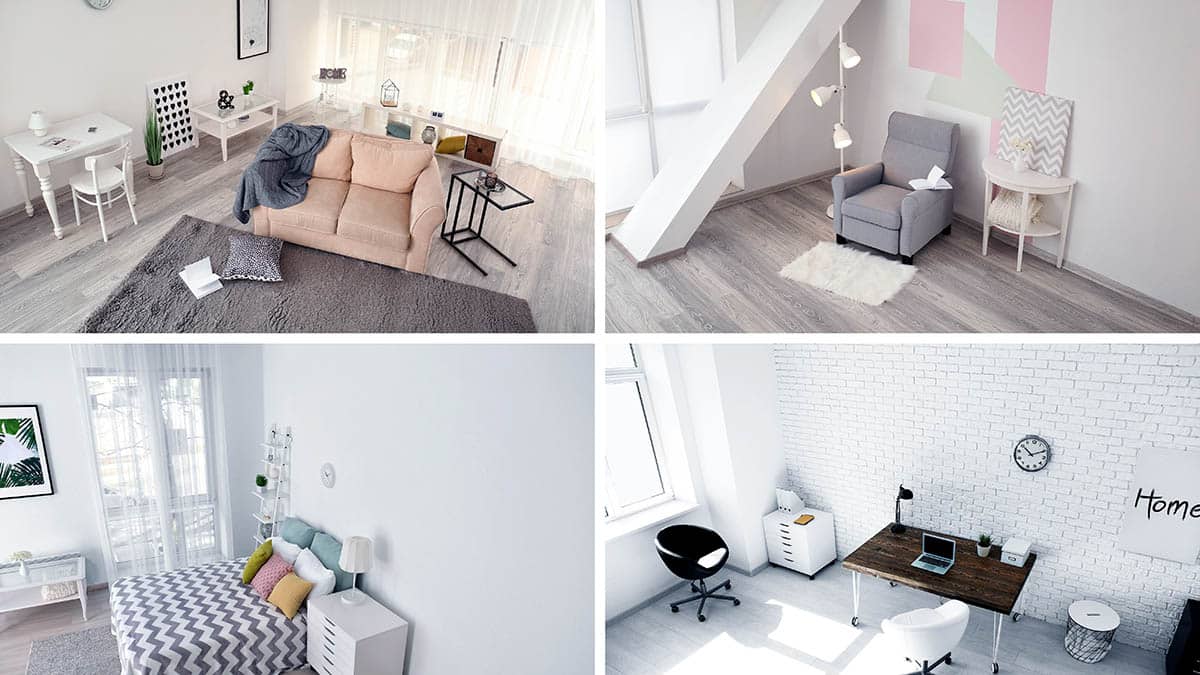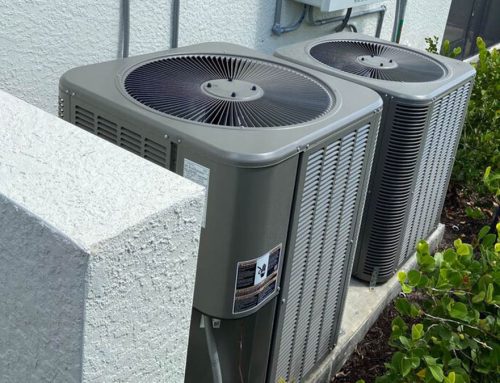My House is Hot Upstairs and Cold Downstairs – Here’s How to Fix That

The temperatures are getting higher, and with them the pressing question for many homeowners – why is my living room freezing while my bedroom feels like an oven? How can I fix this problem?
With all the technology advances of this century, homeowners can finally rest assured that their homes can cool or heat evenly and efficiently even if there are multiple floors.
Although issues with insulation or improper window installation can affect your home’s ability to get and stay warm or cool throughout the space, many times the issue is actually directly related to their outdated HVAC system.
If the upstairs is easily 10 degrees hotter than the downstairs in the summer, and you try turning your thermostat down, only to realize your downstairs now starts to freeze – you know how difficult it can be for you and your family to be comfortable.
Here are some solutions to settle this frozen downstairs or scorching hot upstairs challenge of your home:
System Zoning
- In cases where certain rooms are warmer or cooler than others, system zoning is a solution that will help control the heating and cooling of rooms throughout your home. Typically, rooms upstairs are warmer than rooms downstairs, and, oppositely, basement rooms tend to stay much cooler due to the fact they are underground; also, rooms that are on the side of your home that receives more sunlight than others will tend to be warmer and need more energy to keep cool.
- With system zoning, thermostats are wired to a control panel, constantly reading temperatures in their specific zone, instead of from one central location in the home. This allows you to set the thermostat to heat or cool individual rooms to meet desired temperatures in those locations.
- With proper use, system zoning can help you save money on your energy bills – up to 30 percent on a typical heating and cooling bill, according to the U.S. Department of Energy.
Check Your Ductwork for Leaks and Proper Insulation
- If your ductwork has significant leaks are you letting precious heating or cooling literally evaporate into thin air. Leaks in the ductwork can make it nearly impossible for your HVAC system to balance the temperature throughout the home. This makes your equipment have to work much harder to get the air to where it needs to be, and can result in energy waste of about 25% – a fact that will reflect itself on your home energy bills.
- You may be able to reduce heat or cool air loss by up to 30% just by adding proper insulation.
- An expert HVAC contractor will be able to check your ducts for leaks or inadequacies in the insulation and provide options for fixing the issue.
Reconfigure or Resize Duct Work
- Sometimes the issue is as simple as adding ductwork in specific areas, or reconfiguring the current setup. If you have an older home, it’s very likely that the ductwork was not configured as it would be to meet today’s standards. You may need additional ducts or vents to properly heat and cool the entire house.
HVAC System Upgrades
- While it’s not an inexpensive option, sometimes upgrading your system to a more efficient model may be the best long-term solution. The savings on your energy bills and the added comfort may very well make it worth the investment.
- If your existing HVAC system wasn’t properly sized, it may just be too small to adequately heat or cool all of the space in your home. You may need a more powerful system, or possibly two separate systems.
Ductless Air Conditioning
- Modern, versatile, and energy efficient solution for your home – whether it’s heating or cooling, ductless mini splits, like those offered by Mitsubishi, Carrier or Fujitsu, can give you total control of your family’s comfort in a problem room, in a section of the house, or for your whole home.
- Ideal for homes or businesses in buildings with no existing ductwork. Installing ductwork can be costly, and often times there isn’t enough room for their addition.
- Ductless is a good solution for areas that are not served by an existing central air system and cannot easily be ducted in, such as additions, sunrooms, garages, etc.
- Mini-splits make it easier to zone for different cooling needs in different parts of your home – allowing you to save energy while maximizing your personal comfort.
- Ductless systems may help reduce dust in the home, as there are no ducts that need cleaning so dust, mold and other allergens in the air do not get trapped. Traditional A/C ducted systems should have ductwork cleaned every few years.
- With ductless system, there are no air leaks through ductwork.
- If properly sized, ductless is usually more efficient than traditional systems.
As with all the systems, if not properly sized or installed, the zoning and ductless split systems will not run as efficiently as expected.
Not all HVAC contractors are fully trained and knowledgeable in HVAC efficiency, proper ventilation, zoning, and ductless technology. Placing your trust in UGI Heating, Cooling & Plumbing’s skilled HVAC contractors will ensure you’re getting the right system based on your budget, goals, and specific home’s needs.
Make an appointment today with the leading HVAC company for all of your cooling and heating system needs in Bethlehem PA, Harrisburg PA, Lancaster PA, Reading PA.
![My House is Hot Upstairs and Cold Downstairs – Here’s How to Fix That 2 Saving Money with an HVAC Maintenance Plan in [target_location]](https://www.ugihvac.com/wp-content/uploads/sites/11/2025/06/Blog-The-Benefits-of-Service-Plans-1200x675-1-1-500x383.jpg)
